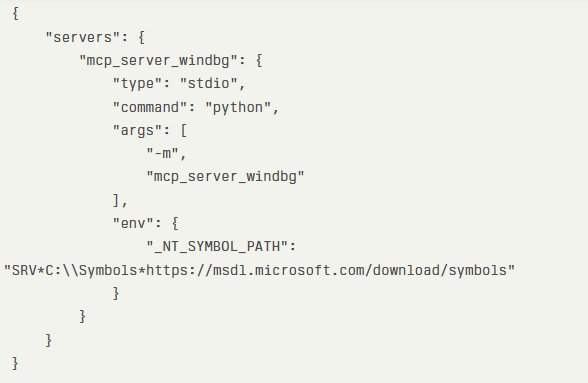[[{“value”:”
In a significant leap forward for software debugging, a researcher has successfully developed a groundbreaking tool that brings AI assistance to one of computing’s most archaic processes: Windows crash dump analysis.
Sven Scharmentke recently unveiled “mcp-windbg,” an open-source project that integrates GitHub Copilot with WinDbg through Anthropic’s Model Context Protocol (MCP), enabling developers to investigate system crashes using natural language rather than cryptic debugging commands.
Transforming Crash Analysis Through Conversation
Traditionally, analyzing Windows crash dumps requires developers to manually type commands like !analyze -v and .ecxr in WinDbg, then interpret hexadecimal memory addresses and complex stack traces.
Scharmentke’s innovation fundamentally transforms this workflow by allowing engineers to simply ask questions such as “Why did this application crash?” and receive comprehensive, contextual responses.
“While the rest of software development has evolved at warp speed, crash dump analysis feels like it’s been preserved in digital amber for decades,” Scharmentke wrote in his project announcement on May 4, 2025.
“I’m talking about a fundamental transformation where you simply have a conversation with your debugger.”
The mcp-windbg tool functions as a bridge between AI models and Microsoft’s debugging tools. It uses Python to spawn and communicate with CDB (the command-line version of WinDbg), parsing output and exposing functionality through the Model Context Protocol to VS Code.
Configuration requires creating a .vscode/mcp.json file containing server specifications:
In demonstration videos, Scharmentke showcases two primary use cases: crash analysis with automated bugfix recommendations and simultaneous analysis of multiple crash dump files.
The system can interpret assembly code, check memory contents, traverse structures with symbols, and perform other advanced debugging tasks without requiring specialized knowledge of WinDbg commands.
“This is a game changer – not just for engineers, but also for support, QA, and everyone involved with crash dumps,” Scharmentke explains.
“It’s like going from hunting with a stone spear to using a guided missile.”
The project leverages Anthropic’s Model Context Protocol, released in November 2024, which enables AI assistants to interact with external tools through a standardized interface.
While initially designed for GitHub Copilot in VS Code, the implementation remains platform-independent, potentially working with various AI models and environments.
Crash dump analysis has traditionally been one of the most technically demanding aspects of software development, requiring specialized knowledge of debugging tools and memory management.
By abstracting away this complexity, tools like mcp-windbg could significantly reduce debugging time and make crash analysis accessible to a broader range of developers.
The project is available on GitHub under the username “svnscha” and requires the Windows SDK with Debugging Tools for Windows.
While the AI assistance streamlines the debugging process, Scharmentke emphasizes that human expertise remains crucial for guiding the analysis and interpreting results in context.
As AI integration continues transforming software development workflows, mcp-windbg represents one of the first practical applications that bring conversational AI capabilities to system-level debugging tasks.
Find this News Interesting! Follow us on Google News, LinkedIn, and X to Get Instant Updates
The post Researcher Integrated Copilot with WinDbg to Analyze Windows Crash Dumps appeared first on Cyber Security News.
“}]]
Read More Cyber Security News
